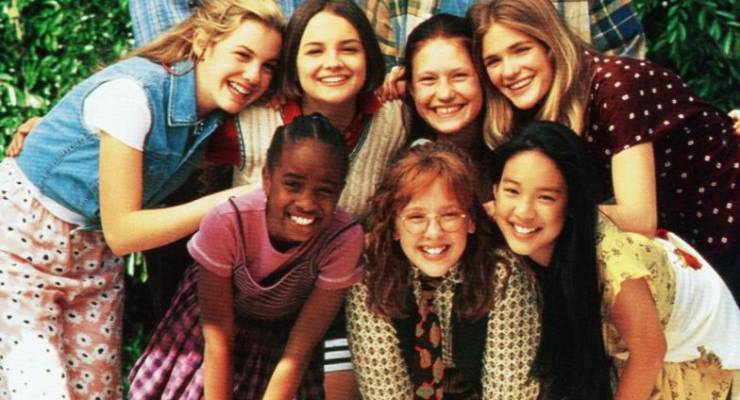
Ever struggled to find a reliable babysitter? Some years ago, a group of American parents reckoned they found the solution. They created a voucher system. The rules were simple: if you babysat someone else’s kids, they give you one of their vouchers. If someone else babysat your kids, you gave them one of your vouchers. The system ensured everyone was doing their fair share of babysitting. A perennial problem of parenthood had been solved.
Or so they thought. Problems arose when some couples in the group started to hoard their vouchers, worried they might need babysitters more frequently in the future. As the flow of vouchers slowed, other couples panicked and started hoarding vouchers themselves. The result was textbook economics. The babysitting cooperative went into recession.
These parents discovered a core tenet of macroeconomics: that my spending is your income and vice-versa. When some parents stopped spending their vouchers, they robbed other parents of the opportunity to earn vouchers. Those other parents, in turn, spent fewer of their vouchers. And so on.
The same is true for the economy. If consumers see their wages cut, they stop buying goods and services. If consumers stop buying goods and services, businesses stop earning money. If businesses stop earning money, businesses cut wages and hiring. And thus the downward spiral continues.
This is exactly what we are seeing in the Australian economy: a downward spiral of weak wages, reduced spending and struggling businesses.
Nowhere is this more apparent than the Australian retail sector. In 2018, retail turnover averaged $12,731 per person. After inflation, that was only 0.6% higher than in 2017. By contrast, immediately after the Liberals came to office, retail spending was growing much more rapidly, with real retail spending per person rising at an annual rate of over 2% in 2014 and 2015.
It’s no wonder we’ve seen so many big names in retail struggling or going bust. In recent times, Roger David, Laura Ashley, Toys R Us, Masters, Dick Smith, Bi Lo, Angus and Robertson are just a few of those who have closed retail stores.
Some might be tempted to blame online shopping: that more Australians are buying their goods and services from overseas. The data suggests there’s more to it. Data from Australia Post and StarTrack shows that 80% of our online buying is from Australian companies.
New vehicle sales have suffered the same fate. In 2018, we bought 3% fewer vehicles than in 2017. Concerned consumers are deciding to put off upgrading their car.
So what explains the difficulties facing consumers? Callam Pickering, an economist from the global jobs site Indeed, points the finger squarely at wages. “The retail sector continues to come under intense pressure from persistently low wage growth, he said.
Gareth Aird, senior economist at the Commonwealth Bank, warns that retail trade growth is soft primarily because demand for discretionary goods has slowed on weak household income growth”.
The National Australia Bank notes that consumer anxiety has reached its highest level in over three years as slow income growth and high debt levels weighed on households and their spending. David Rumbens from Deloitte warns that “many retailers have only survived the last few years because [Australian households] lived beyond our means”.
The federal government has a lot to answer for. Wages growth has been lower every quarter under this government than any quarter under its predecessor. Wages growth has been as low as 1.9% since the 2013 election. Even during the global financial crisis wage growth didn’t drop below 2.9%. Wages growth has been a third lower, on average, under this government than it was under the previous government.
Scott Morrison could learn a lot from the babysitters in America, and not just because his frontbenchers have a habit of spitting the dummy.
The old adage “my spending is your income and your spending is my income” means that lower wages aren’t just a problem for struggling households. It is a problem for retailers, too. The response of the Abbott-Turnbull-Morrison government has been to cut penalty rates, attack collective bargaining and have Finance Minister Mathias Corman praise the economic virtues of weak wages for Australian businesses. This government’s tone-deaf politics is surpassed only by its retrograde economics.
Our plan is straightforward. We’ll ease pressure on household budgets by boosting wages, restoring penalty rates, addressing casualization, cracking down on labour hire, and investing in apprentices, skills and training. We will fix our schools and hospitals, stand up for workers and pensioners and invest in cheaper, cleaner energy.
Australia needs a strong economy that works for all. We’ll give tax cuts for small and medium businesses and an Australian Investment Guarantee that provides a tax write-off for businesses that invest in Australia. We’ll invest in schools and properly fund infrastructure, paid for by winding back billions of dollars in unsustainable tax loopholes.
Only one side of politics has a plan for economic growth, because only only one side of politics has a plan for wages.
Andrew Leigh is the Shadow Assistant Treasurer.
Crikey accepts submissions from all sides of politics which are in keeping with our editorial standards.








Yes!
Well written presentation of a basic economic truth, Andrew. Hope to see and hear more of you in future Labor governments.
The big mystery about all this is that the captains of industry, the brightest of the bright, the powerful blokes (mostly) who sit around the table at the Business Council of Australia, and the loyal capitalists at the ACCI, the Australian Industry Group and the Council of Small Business (should that be small-minded business), don’t understand this, either.
When Donald Horne talked about the Lucky Country (look up the context) he was dead right.
Thanks for stating the bleeding obvious. How about you follow-up with a more detailed explanation of exactly how you will get wages up, continue downward pressure on unemployment, reduce underemployment, and provide opportunities for first peoples and those living outside the comfortable capitals? I would welcome a real Labor government but not too sure your crew of mostly professional politicians (yes, I know you’re an academic but where are the workers?) can deliver. Yours, with hope, Michael
Well, Andrew, when my neighbourhood babysitting club failed in Canberra in the seventies it wasn’t to do with fundamental economics, but because we gradually realised that there was an unexamined risk of sexual abuse, as fathers and mothers were both entitled to perform the babysitting and we all knew each other only slightly as neighbours with small children.